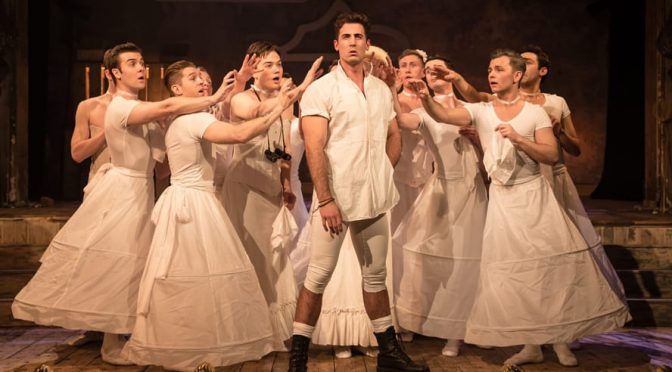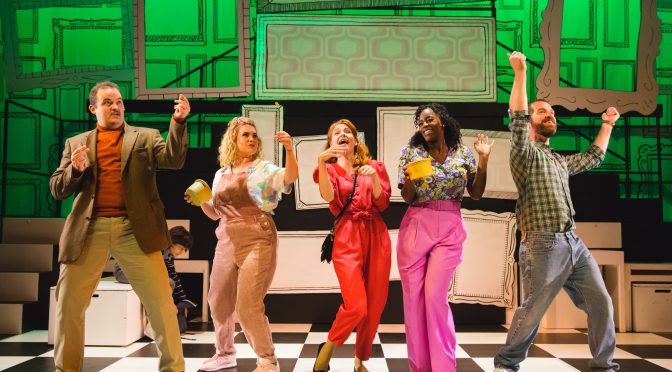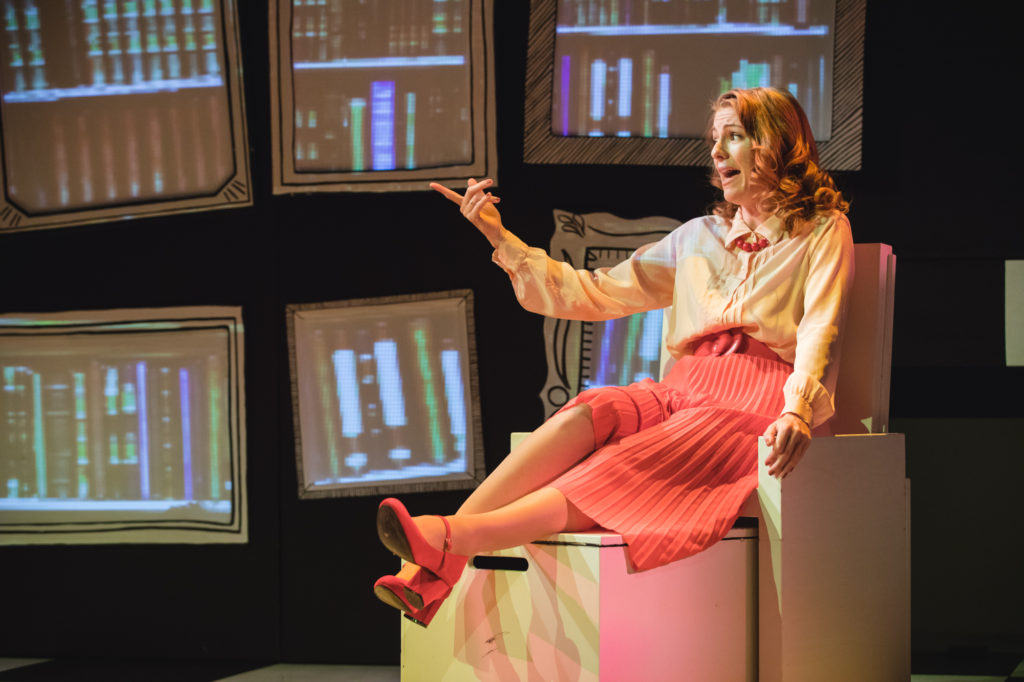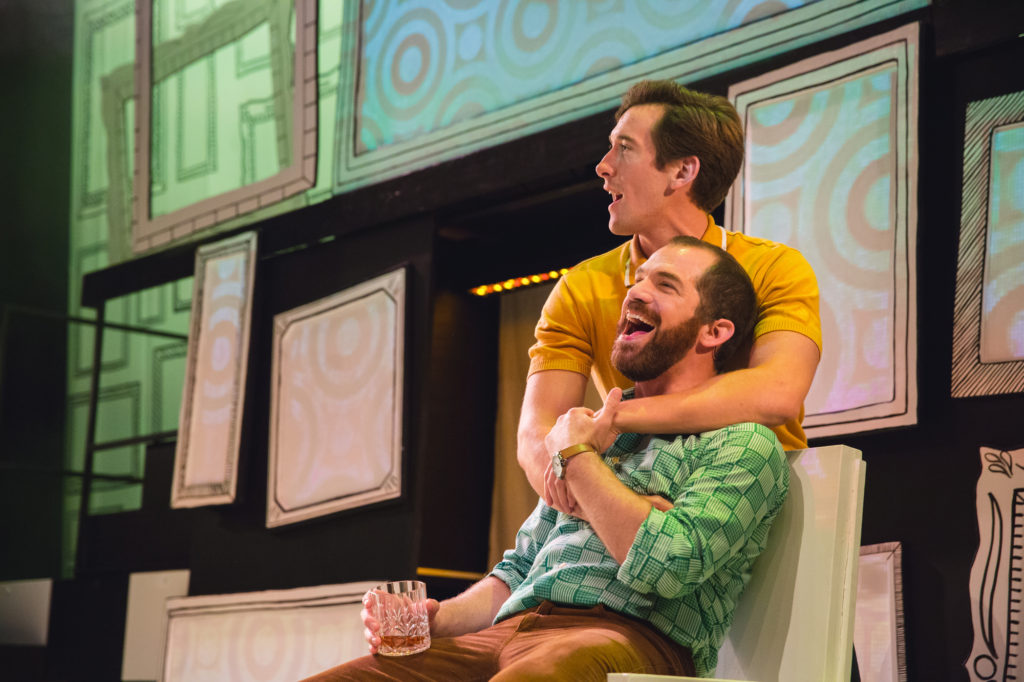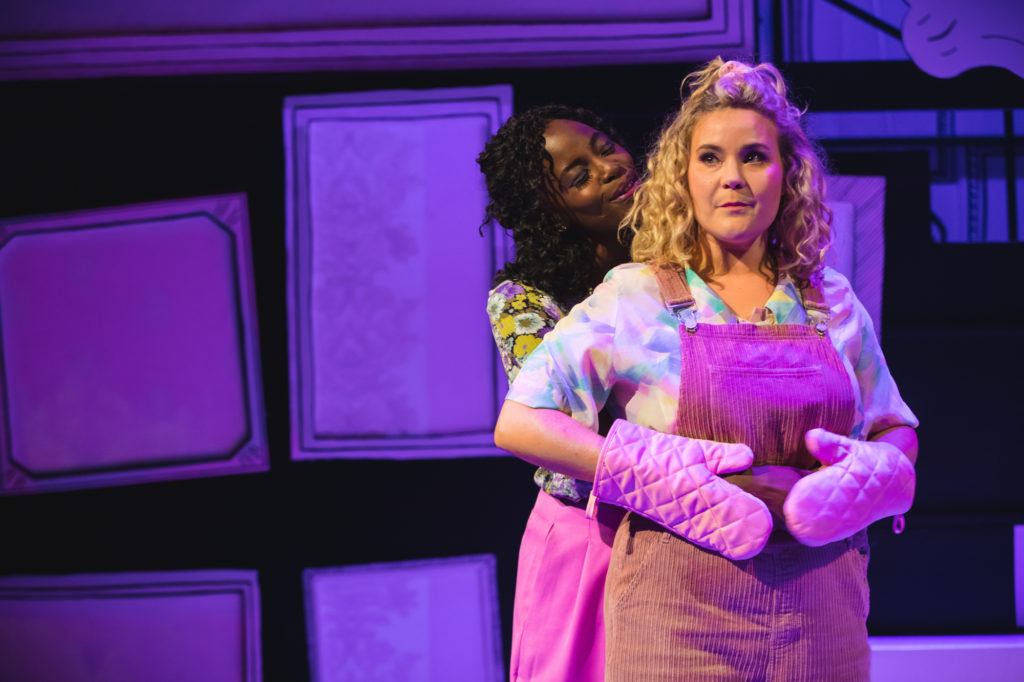Sasha Regan’s all male productions of Gilbert and Sullivan operettas have a loyal following. For full disclosure, I consider myself such a fan so an effort at an impartial blog is tricky. And after such a terrible year for the theatre, seeing one of Regan’s shows is an especial treat. A theatrical highlight of 2020, well, that isn’t saying much… but this show is perfection any year.
The genius behind Regan’s productions (I told you I was biased) is a sense of fun and innocence. The shows are stripped back to basics with fantastic charm. Robyn Wilson-Owen’s design has make do and mend creativity. The brilliant costumes aren’t really drag; they deliberately look like something grabbed from a costume box. And the music comes from just a piano, with Richard Baker’s fantastic musical direction making the most of Sullivan’s tunes.
That ‘g’ word
A campy sense of humour works with Gilbert’s topsy-turvy scenarios and distinctive satire. We can laugh at the Victoriana… but remember, that’s what Gilbert was doing too. It’s unusual to see a radical version of a classic that will appeal so to traditionalists. I feel like using the ‘g’ word again.
The special treat for this event is seeing the show in such a large venue. Regan’s base is the tiny Union Theatre and although the shows have successfully toured, and found a second home at Wilton’s Music Hall, the majestic Palace Theatre is a much larger venue. There’s a fantastic appeal in seeing a piece that deflates pomposity in such a grand setting. Given that the high tech set for the Harry Potter blockbuster is still visible, the feeling that a troupe have cheekily sneaked on to the stage is enchanting.
A pretence of spontaneity to performances – offside remarks and deliberate gaffes – is, as such things have to be, cleverly rehearsed. The ensemble is enormously hard working, nearly all swapping roles at least once: adding to the fun as they play a pirate one moment and a lady the next.
The show’s leads are the final treat
The show’s leads are the final treat. It is a thrill to see them perform so masterfully on a large stage. Leon Craig as Ruth adds a touch of pantomime dame that is appropriate, while David McKenchie’s patter as the modern major general is spot on. Oliver Savile’s Pirate King is suitably swashbuckling, able to swish his coat tails masterfully.
Tom Senior’s performance as the “slave to duty” Frederic is truly special. Not only does Senior sound wonderful, he brings a sincerity to the role that demonstrates excellent acting skills. Frederick doesn’t think he’s a source of fun, even if the rest of us do. His love at first sight with Mabel ends up deeply moving as a result. As a final triumph for the show, Alan Richardson’s Mabel is breath-taking. Such an extraordinary voice is worth hearing at any opportunity. Richardson’s comic skills are a joy but, again, carefully controlled. We need to fall for Mabel just like Frederic does. That we do just that illustrates Richardson’s star quality; always at home on the West End stage and hopefully to be seen on one frequently in 2021.
Until 13 December 2020

